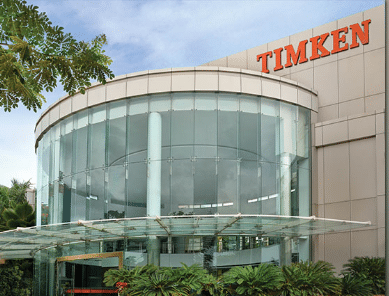
Introduction:
SKF and TIMKEN are renowned manufacturers in the bearing industry, each with its unique technical advantages and engineering designs. This article presents a comprehensive analysis comparing the technical strengths and engineering designs of SKF bearings and TIMKEN bearings, providing insights into their respective capabilities and suitability for diverse applications.
Technical Advantages:
SKF Bearings:
Advanced Material Technologies: SKF leverages cutting-edge material technologies to enhance bearing performance and durability. High-quality steel alloys, advanced ceramics, and polymer composites are utilized to optimize bearing properties such as load capacity, wear resistance, and corrosion resistance.
Innovative Sealing Solutions: SKF offers a wide range of sealing solutions tailored to specific application requirements. These include contact seals, non-contact seals, and labyrinth seals designed to prevent ingress of contaminants, retain lubricants, and extend bearing service life in challenging environments.
State-of-the-Art Lubrication Systems: SKF develops advanced lubrication systems to ensure optimal performance and reliability of bearings. From conventional grease lubrication to centralized lubrication systems and advanced oil-air lubrication systems, SKF provides solutions to minimize friction, reduce wear, and enhance operational efficiency.
Predictive Maintenance Technologies: SKF integrates predictive maintenance technologies such as condition monitoring, vibration analysis, and online monitoring systems into its bearings. These technologies enable early detection of potential failures, proactive maintenance planning, and optimization of asset reliability and uptime.
TIMKEN Bearings:
Precision Engineering and Manufacturing: TIMKEN is renowned for its precision engineering and manufacturing processes, ensuring dimensional accuracy, consistency, and reliability of bearings. Advanced machining technologies, automated production lines, and stringent quality control measures guarantee superior product quality and performance.
Application-Specific Designs: TIMKEN develops application-specific bearing designs tailored to unique performance requirements and operating conditions. This includes customized internal geometries, specialized materials, and advanced coatings optimized for specific industries such as aerospace, automotive, and heavy machinery.
Enhanced Load-Carrying Capacity: TIMKEN bearings are designed to withstand high loads and harsh operating conditions encountered in heavy-duty applications. Advanced load-carrying designs, optimized contact geometries, and robust construction ensure reliable performance and extended service life in demanding environments.
Environmental Sustainability Initiatives: TIMKEN prioritizes environmental sustainability in its bearing designs and manufacturing processes. From eco-friendly lubricants to recyclable materials and energy-efficient production methods, TIMKEN strives to minimize its environmental footprint and promote sustainable practices across its operations.
Engineering Design:
SKF Bearings:
Integrated Bearing Units: SKF offers integrated bearing units combining bearings, housings, seals, and lubricants into a single, compact assembly. These integrated units simplify installation, reduce maintenance requirements, and optimize performance in various applications, from automotive wheel hubs to industrial machinery.
Modular Design Concepts: SKF employs modular design concepts to facilitate interchangeability, customization, and scalability of bearing components. Modular designs enable easy adaptation to different application requirements, reducing design complexity, lead times, and total cost of ownership for end users.
Finite Element Analysis (FEA) and Simulation: SKF utilizes advanced engineering tools such as FEA and simulation software to optimize bearing designs and performance. These tools enable virtual testing, stress analysis, and performance prediction, facilitating rapid iteration and refinement of designs to meet specific customer needs.
TIMKEN Bearings:
Application Engineering Support: TIMKEN provides comprehensive application engineering support to assist customers in selecting the right bearings for their specific requirements. Experienced engineers collaborate with customers to analyze application parameters, recommend suitable bearing solutions, and optimize designs for performance and reliability.
Innovative Coatings and Surface Treatments: TIMKEN develops innovative coatings and surface treatments to enhance bearing performance and longevity. These include corrosion-resistant coatings, low-friction coatings, and anti-wear treatments that improve durability, reduce maintenance, and extend service intervals in challenging environments.
Reliability-Centered Maintenance (RCM) Approach: TIMKEN adopts a reliability-centered maintenance approach to bearing design, focusing on maximizing reliability, uptime, and lifecycle cost savings for customers. This involves analyzing failure modes, developing preventive maintenance strategies, and incorporating features to minimize downtime and enhance operational efficiency.
Conclusion:
In conclusion, both SKF bearings and TIMKEN bearings exhibit impressive technical advantages and engineering designs that cater to diverse customer needs and application requirements. SKF’s strengths lie in advanced material technologies, innovative sealing solutions, lubrication systems, and predictive maintenance technologies. On the other hand, TIMKEN excels in precision engineering, application-specific designs, load-carrying capacity, and environmental sustainability initiatives. By understanding the unique capabilities and engineering philosophies of SKF and TIMKEN, customers can make informed decisions and select bearings that optimize performance, reliability, and total cost of ownership for their applications


